The Pros and Cons of Separating a Blog From a Website

In blogging, there are two ways you can organize your system from the ground up. The first is to keep your entire site conjoined as one site. The second is to split up individual sections of your site. The easiest in this second method is to split off your blog into a second site of its own.
This was a big debate around a decade ago, but these days it seems settled. You keep your blog as part of your site, right? After all, that's the entire point of the blog; to boost your site's visibility.
I thought I'd revisit this old quandary with a new perspective. Since the last real time I saw this debated, Google has changed a lot, with Panda, Penguin, BERT, and all manner of other updates. Mobile has gone from a new technology to the dominant force in web browsing. Responsive design is everywhere. What else may have changed this equation?
I'm going to look at things from the perspective of deciding to split off the blog. What are the pros of splitting the blog onto another URL, and what are the cons?
 30 Second Summary
30 Second Summary
You can organize your blog in two ways: keep it within your site or set it on a separate site. Many maintain their blog within their site to boost visibility. Pros of a separate blog include free platform use, targeting regional content, unaffected by site changes, easier to maintain multiple blogs, and selling the blog later. Cons include losing URL continuity, harder to direct users to the main site, loss of link juice, additional sites to maintain, and comparable advantages being doable in other ways. Still, having a blog on the same domain remains preferable.
Pro: You Can Use a Free Blogging Platform
Perhaps one of the biggest benefits to keeping your blog on a separate site, at least when you're just starting out, is the ability to use an external blog platform. Using Blogger or the free WordPress.com hosted blog is very easy.
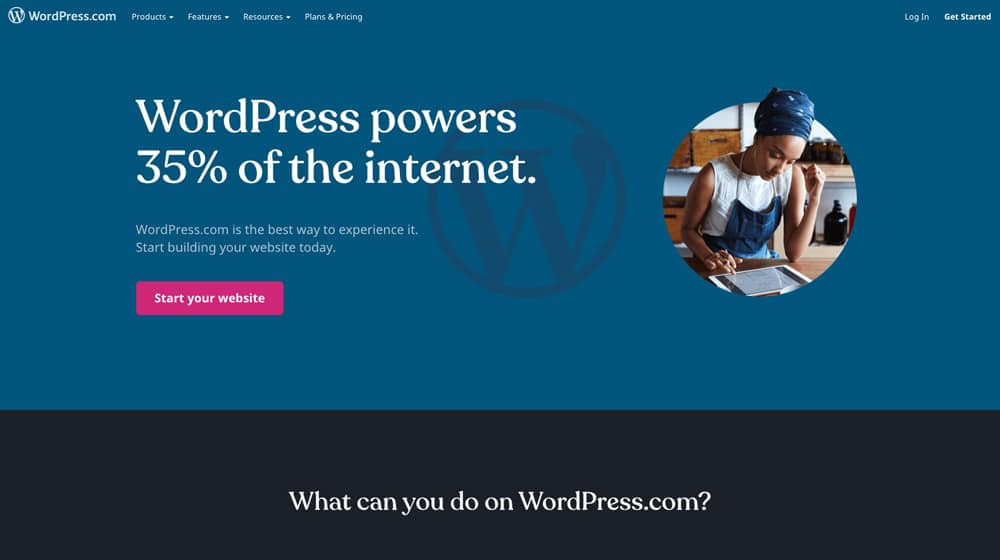
This is particularly beneficial if you're using something like a Wix-based site builder, where you're building your main site for free as well. This combination allows you to get yourself started and running, and potentially even making a profit, before you have to start spending money on the entire situation.
This also saves you a lot of time and effort that you would be spending on website maintenance. Since WordPress maintains their blogging platform for you, you don't have to muck around with code, themes, plugins, or any of the other back-end development stuff.
Free blogging platforms aren't necessarily always that good, of course. There are a lot of advantages to using your own self-hosted version, not the least of which is the level of customization. Free blogging platforms don't allow you to add more plugins or customize your theme beyond a few basic choices.
You can think of it like this: you have a lower barrier to entry, but also a lower ceiling on the top-end of your potential performance.
Con: You Lose URL Continuity
If you don't know how Google works internally, here's a very brief, very limited crash course. As far as Google is concerned, your URL is your unique identifier. They don't care about your brand name, not really. So brandname.wix.com and brandname.wordpress.com and simply brandname.com are three entirely different, entirely separate websites.
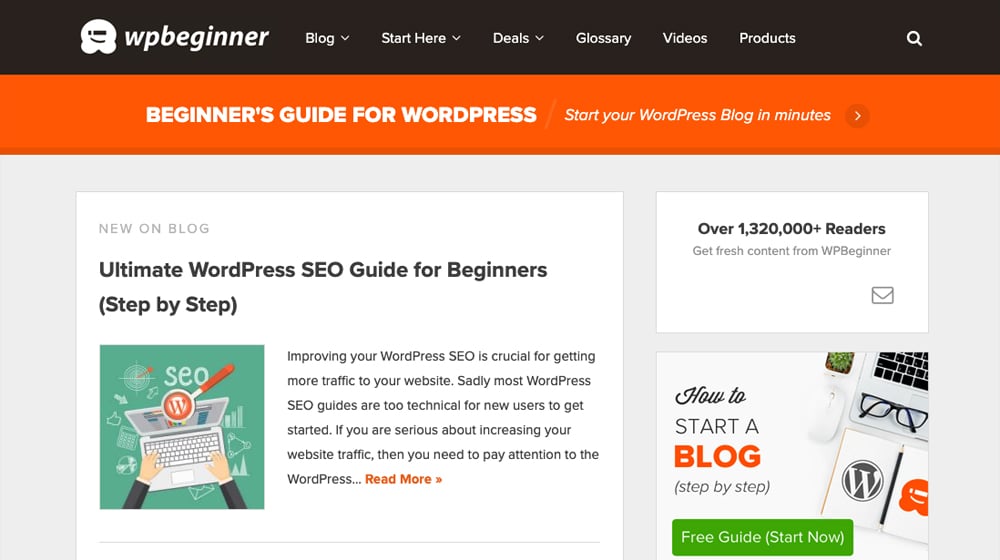
What this means is that if your blog gets famous, builds up links and traffic, and starts pulling in readers, that's great! None of that value whatsoever passes to your storefront half of your site. You have to manually get people to click through, and you're limited in your ability to do that. You can't run sidebar calls to action, you can't install a Hello Bar, and you can't set up much in the way of landing pages. You're more or less limited to links in your content, and those have a huge attrition rate.
Now, it's possible that the search engines will identify that the store and the blog are the same brand, particularly if you have the same name and it's a relatively unique name, but that's still not going to get them to count as the same page. Heck, we saw a lot of people lose SEO value just switching from HTTP to HTTPS, or moving a blog from a subdomain to a subfolder. Losing that URL continuity can be a huge roadblock you have to overcome to make sure your money-making half of your site is a success.
Pro: You Can Better Target Regional Content
While the first advantage up above is for newcomers to the online world, this one is for those who are long established. Sometimes, you will see entirely different URLs for different divisions of the same megacorporation. They have an English site, a European site, a Chinese site, and so on. Or, alternatively, they have one centralized site, with customized blogs with their own URLs in each target language or region they want to reach.

Here's an example. The international automaker Mazda has a global presence. Their USA version is on a domain called mazdausa.com, and the blog for that site is on insidemazda.mazdausa.com. Meanwhile, their Japanese branch is at mazda.com, and the blog there is simply blog.mazda.com.
Do they publish the same content? Probably not. Are they run by the same brand? Yes, but entirely different branches of it. The blogs are not technically separate URLs, but rather the entire national branches of each are split off on their own. It's a far cry from having one centralized global.mazda.com with individualized language sites like many other international corporations use.
Is this likely to be relevant to most of my readers? Probably not. Still, if you're in a position to have two national versions of your site, it might make sense to maintain two different URLs.
Con: It's Harder to Refer Users to Your Main Site
It can be pretty hard to get people to click links. It doesn't matter if those links are in banner ads, in text, in sidebar slide-in scripts, in exit intent pop-ups, or what have you. Your users have their own ideas of what they want to be doing with their time, and clicking on your links and following your directions are rarely on their mind.
In a normal situation, where your blog and your store and the other pages on your site are all on the same domain, at least the user already has that element of trust. They know your URL, they know who you are, they're already here, so clicking to another page on the same site isn't all that difficult.
When the domain names are different, the user loses a bit of that trust. Since you're linking to it, it must be legitimate, you might think, but some people simply see the change in domain and don't want to go through loading another page.
From an outside perspective – that is, from a Google search results page – a user might not know which of the URLs is real. Everyone is so used to businesses having one URL that having more than one might make them think one is real and one is an impersonator or phishing site.
Pro: If Your Site Changes, Your Blog Doesn't Have To
For most of this, I've been assuming you've been thinking of having at least some level of brand continuity between your sites. Running with brandnameblog.com and brandname.com, for example. This is fine, but there's another scenario where you might want something completely different.
Let's say you're an entrepreneur, and you intend to blog about a lot of different things that interest you. You might want to keep a blog for yourself an entrepreneur, and run your business site as a different site entirely.
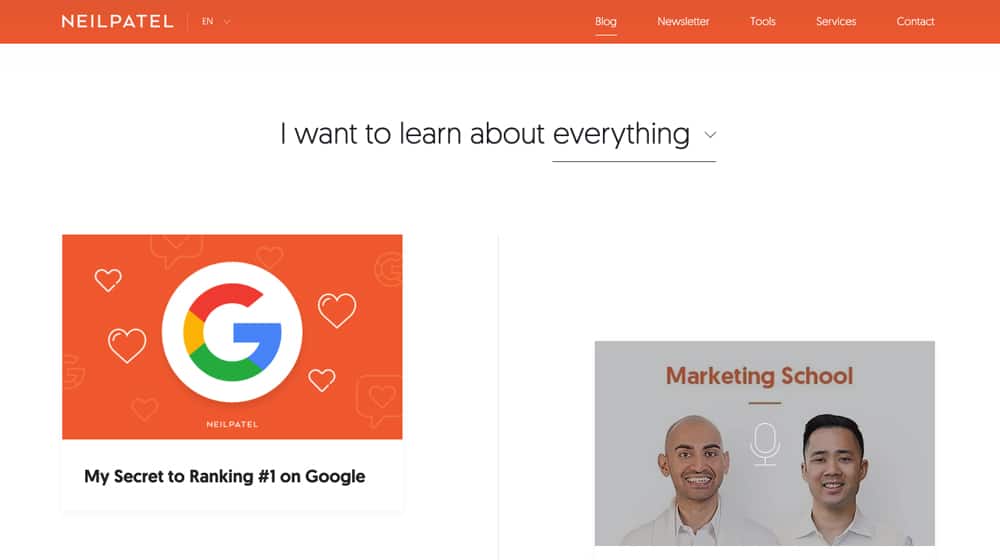
We create blog content that converts - not just for ourselves, but for our clients, too.
We pick blog topics like hedge funds pick stocks. Then, we create articles that are 10x better to earn the top spot.
Content marketing has two ingredients - content and marketing. We've earned our black belts in both.
A real-world example of this is Neil Patel. Neil is an entrepreneur who has founded a number of businesses, from his own consulting business to QuickSprout, KissMetrics, and CrazyEgg. All three of those sites have their own domains and their own blogs, but Neil maintains neilpatel.com as well.
That way if you – or if he – decides to sell one of those businesses, he can, and he doesn't lose anything from the exchange. If he wants to rebrand one of them, he can, and it doesn't affect the other blog.
Con: Your Main Site Loses Link Juice
Another crash course in Google here for you: Google runs on links. Sites are ranked by, among other things, the number and quality of links pointing to them from other sites. More links pointing to that site – to the specific domain – means the site will rank better in the Google search results.
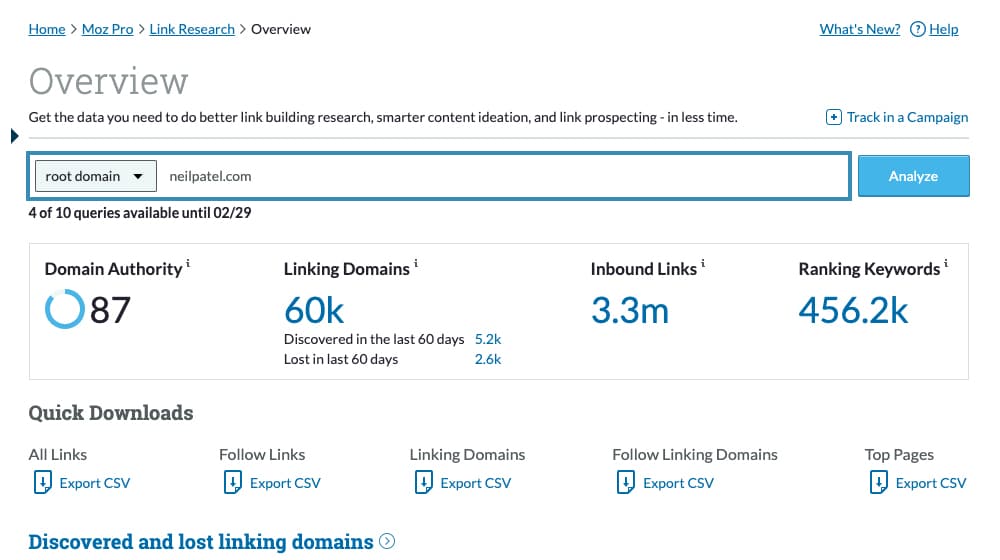
Links go by domain, which means if you split your blog off to another domain and it gathers a whole bunch of links, your main site gets zero benefit from it. You can link to your main site from your blog, and of course you will be, but links only pass a fraction of their value from one site to the next. That's why links from powerful, high quality sites are inherently better than links from new, small sites; those sites have a huge amount of "link juice" to trickle down.
Splitting a blog off from a main site means that those two sites are essentially isolated from one another. You can link between them, but there's the chance that Google will decide you're trying to use some manner of link scheme rather than just cross-linking between two related domains. This has the potential to even penalize one or both of your sites, which is the opposite of what you want to have happen.
Pro: You Can Maintain Multiple Blogs More Easily
One benefit to splitting your blog off into another domain is that it allows you to open up another blog alongside it, and maintain them both without having to worry about crossover. For example, if you have a blog about social media marketing, a blog about blog marketing, and a blog about paid advertising, all three of those blogs will have some level of overlap. After all, the topics are pretty closely related, right? You can write posts on the same topic for all three blogs and they can all get value from it, without risking duplicate content penalties for your site.
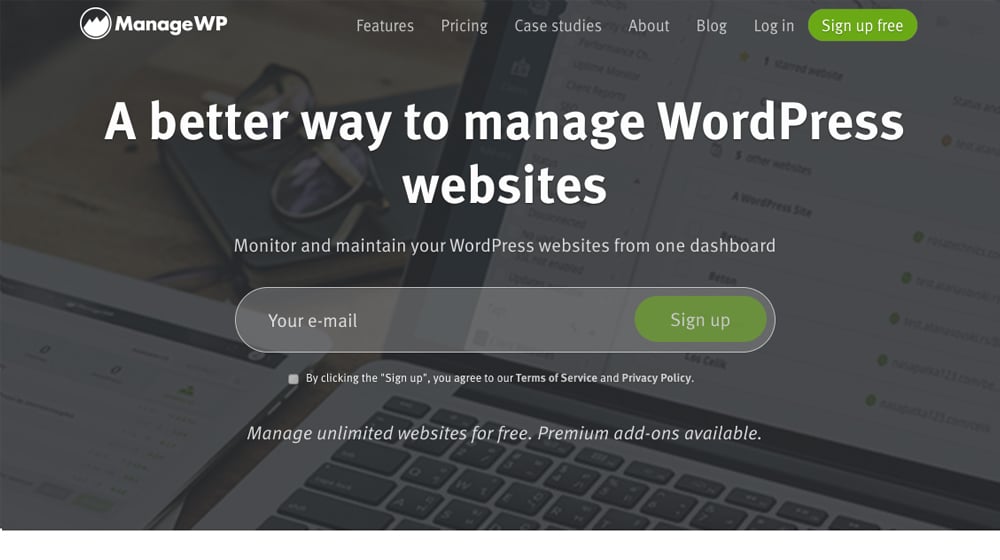
Of course, they still step on each others' toes. If you're writing about the same topic on three different sites, and all three of those rank on the first page of Google, you end up competing with yourself. It's not necessarily a bad thing, if you're capturing plenty of traffic for all three, but you might run into some issues with the overlap.
Then again, you can do this same sort of thing with one site, using subfolders or subdomains instead. HubSpot is one of the biggest examples I can think of. Their blog is divided into three different main blogs; the Marketing, the Sales, and the Service blogs. They use subfolders to guide them, similar to how I use multiple categories on this site, but with more dedicated content produced for each category every week.
Con: You Have to Maintain More Sites
If you've split off your blog – even if you're using free services like Wix and WordPress – you still have to maintain those sites.
The maintenance for something like WordPress or Wix isn't going to be very high, since they do all of the real work behind the scenes. You just have to do the actual content maintenance, like posting your blog updates. It's easy to focus on one site and lose sight of the other, which is how so many WordPress-based business blogs end up abandoned.
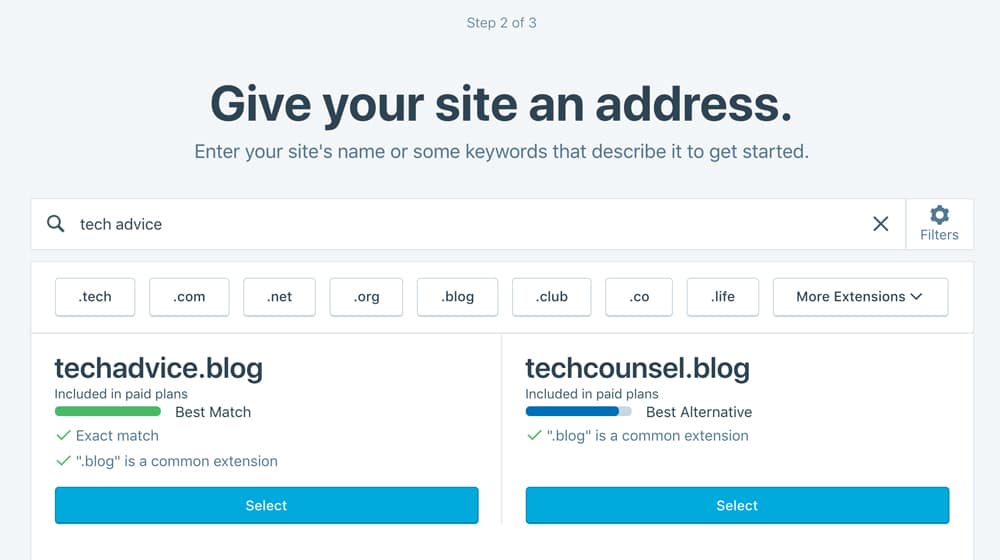
For self-hosted sites, though, you end up having to maintain multiple code bases, multiple sets of themes and CSS files and scripts and all the rest. It can be trouble enough maintaining one site; adding a second is just adding a lot more work to your plate.
Add to this the fact that every one of those sites is an attack vector. If a hacker chooses to target your brand, instead of having one site with one login page to attack, they have multiple sites. If one of them happens to be run on an older architecture or have an unpatched vulnerability, the hacker may be able to gain access to that site, and use that as leverage to gain access to the others. Protecting yourself against multiple attack surfaces is much harder than securing just one or two.
Pro: You Can Sell the Blog or Site Later
As mentioned above, if you eventually choose to sell either your blog or your business, everything on the domain becomes a package deal. I've done this before, and let me tell you, sometimes it hurts losing all of that content. Sure, my name is still attached to some of it – though not all of it – but I don't get nearly as much value out of it as I used to.
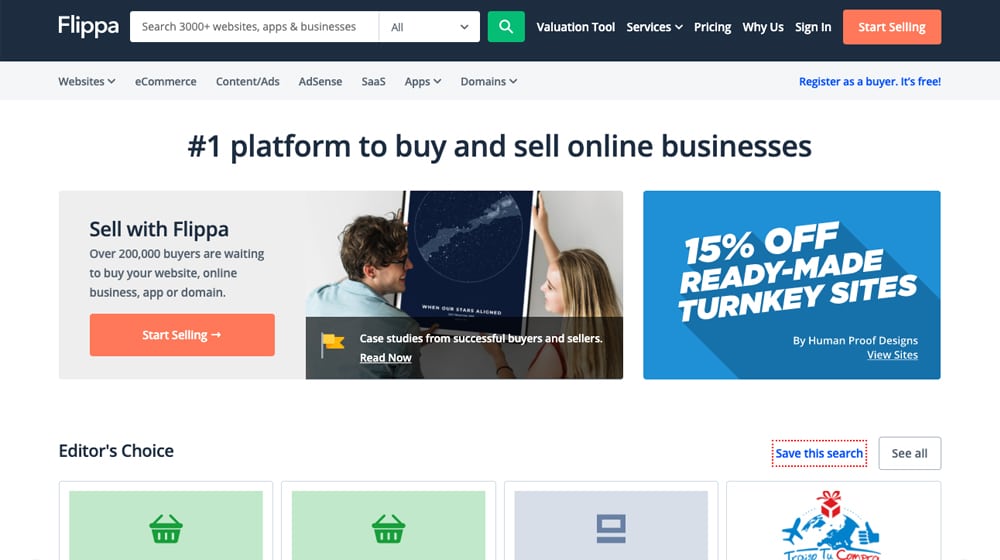
That said, selling a blog or selling a business does have the immediate tangible benefit of giving you a bunch of money you can then leverage into other projects. If you maintain your blog and your business separately, you can use the one you keep as the stepping off point for the next project as well.
Neil Patel is, again, a great example of this. He doesn't own all of the businesses he founded anymore, he's sold several of them, and he leverages his own personal blog and his reputation to create other businesses moving forward. There's a lot of value to be had in that kind of stand-alone pillar of self.
Con: Most Advantages Can Be Done Other Ways
Now, let's review the various benefits I've mentioned for keeping your blog on a separate site.
- You can use a free blogging platform.
- You can target regional content more easily.
- You can maintain multiple blogs.
- You can sell or rebrand a site more easily.
All of these can be done in other ways without having to split off URLs. Most of the time, it's as easy as using a subdomain for the blog.
You can still use a free blogging platform with a site on your own URL. There are plenty of WordPress-hosted blogs that pay a fee to use the URL of the main site. Medium allows this as well, for some publications.
Regional content can easily be targeted with a language indentifying subdomain. Just label your sites with a prefix, like en.brandname.com for English, jp.brandname.com for Japanese, and so on.
Maintaining multiple blogs? Well, I already used HubSpot as an example, but there are plenty of them out there. It kind of blurs the line between blog categories and discrete blogs, too. Heck, Medium is a free blog with a ton of free blogs on it.
Selling and rebranding? That's about the only tangible benefit I can see, and that's only if you're hugely attached to one or the other. When it comes right down to it, you might as well start an entirely new business instead of just a blog on another URL.
So, despite looking at the problem with a more modern perspective, I have to say, the math hasn't really changed. It's still almost universally better to keep your blog and your main site on the same domain, all these years later.



 30 Second Summary
30 Second Summary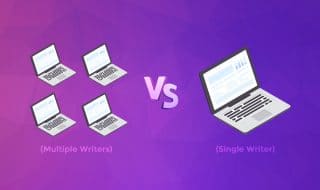
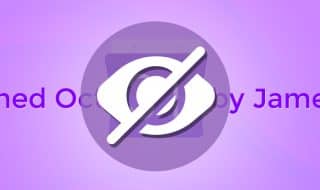

May 17, 2020
I think the only benefit of splitting off your blog into a seperate website is that you can keep them separated and insulated, so you can test backlink strategies and other marketing strategies without it affecting your main site.
May 17, 2020
Hi Jose! That could be a potential benefit, but I wouldn't recommend experimenting with any risky link building practices like this anyway, at least, not on a site that you care about. I think the cons still vastly outweigh the pros here of seperating a blog from your main site. There are so many benefits to blogging and those benefits aren't applied to your main site in the same way if it's on a different domain or a subdomain.
September 28, 2024
Does separating blogs affect your site's SEO?
October 07, 2024
Hey Lucius!
You have a great question there! So if you separate your blog from the main site it can change your SEO process a bit. You know search engines might see them as separate sites which could split your traffic.
I usually like to test strategies by linking back to the main site pretty often.
Do you have a blog that covers various topics? Because sometimes that really can make a big difference in finding the best approach! Let me know if there's anything else you're curious about 🌟
October 10, 2024
do you think it's best to keep separate blogs for different topics? i've always wondered about seo.
October 15, 2024
Hey Marleen!
That's a great question! It really depends on what your goals are and how you want to engage with your audience. Having separate blogs can definitely help to bring together content which is helpful for SEO. I have seen clients benefit from focusing on specific keywords which lets them create more precise content and target their audience better.
Feel free to ask if you would like to know more! 😊
August 22, 2020
It’s still better to have your blog directly on your website. Blogging will not just drive traffic to your site but it also builds credibility to your company. Also, it can develop a better customer relationship. I think these are far more important than anything else.
August 23, 2020
Hey Colby! I agree - the only possible benefit I can think of is potentially limiting your SEO liability incase you accidentally link to a spammy website or have a blog writer that doesn't know what they're doing, but even then, if something happen to a blog post like a huge mention on a high traffic site, it benefits the site your blog is now on and not your primary domain. This kind of defeats the entire purpose of spending all of that effort on your blog in the first place.
Still, I get asked this question occasionally so I thought I'd write a blog post about it. The best blog posts come from real questions and concerns of our clients!
August 25, 2020
Thanks for this writeup, James. It doesn't seem worth the trouble. Our boss is talking about moving our blog to a different domain but I'm going to see if I can talk him out of it. It needs a lot of work but I don't think moving our articles to a different domain is the answer to our problems. Thanks for giving me some valuable talking points
August 30, 2020
Thanks Tiffanee! If you ever need help please drop me a line.
September 23, 2020
Separating the blog from the website is a terrible idea. I just had a client ask me this and was trying to find some concrete answers to prove my case. It's basically separating your content and your links, all of your links on one site, all of your content on the other. It makes no sense!
September 28, 2020
Hey Michael! Pretty much. I can't think of any situation where you'd want to do this either. I've been asked it too a handful of times over the years, so it seems that people are actually considering this. Hopefully I save a few of them from making a mistake.
December 16, 2020
I just started a business and don't have my site yet. Do you think it will be helpful if I can write on a LinkedIn blog first then eventually when everything's settled, I'll have my own site with a blog in it? Or just wait until my own site is up and running?
December 18, 2020
Hey Mike!
I usually save LinkedIn for posting excerpts of the content published on my blog.
You want Google to see the blog appear on your site for the first time, not on LinkedIn's, for duplicate content reasons.
I wrote a good article on this subject here: https://www.contentpowered.com/blog/blogging-linkedin-articles-better/
September 24, 2024
Good read! I didn't know about duplicate content.
October 01, 2024
Hey Diane!
Glad you liked the post! Duplicate content can really cause issues without us realizing it right?
You might try splitting a blog from your main site to help reduce this.
I usually create unique content for each page to keep things fresh - it's kind of a fun challenge!
Have you faced any other blogsite challenges?
Cheers!
June 22, 2021
Hi James
What's your thoughts on a blog that is already separated from the main site? Is it worth the effort to recombine them?
I originally set up my blog a number of years back on a separate site because the platform I was using to host my main website didn't have the option of hosting a blog. I eventually moved over to a new platform but by this point my separate blog was already up and running.
It brings in a decent amount of traffic but getting them to click through to the main site is like pulling teeth. I've been agonising over combining them for a while but i'm worried about how much traffic will be lost when I do. All those posts that have ranked over this time. Will it almost be like starting back at square one?
June 22, 2021
Hey Bradley!
The most important steps here are: implementing redirects and ensuring your user experience doesn't change for the worse.
As long as you have very thorough redirects in place, Google will understand that all of the content has moved.
Implement 301 redirects for the entire site and each page. Manually, if possible. This means individual posts, categories, author pages, and so on.
Make sure the original site never expires. If those redirects eventually disappear, it severs the link, and you may lose some authority.
As far as user experience goes, this means your mobile site, the load time, your ads (if any) - if your primary site has issues, those will affect the performance of your blog articles.
Lastly, make sure you audit each blog post for quality. I wrote a good guide on this here:
https://www.contentpowered.com/blog/perform-blog-content-audit/
If some of your old blog posts aren't indexed, have zero traffic, zero links, or plagiarized content, they aren't worth transferring over. So this may be a good time to do some housekeeping.
My advice is to jump in and do it! As long as you are very careful about redirects, you should be just fine. That's the most critical step.
September 16, 2024
This is so helpful. Do redirects really keep the ranking?
September 19, 2024
Hey Rob!
Glad you found it helpful! Redirects do definitely help keep your ranking. You can guide users directly to the new page which is awesome. I always set up a bunch of redirects whenever I change URLs. You might also want to use webmaster tools to monitor traffic and rankings.
Keep me posted on your progress!
September 15, 2024
So using subdomains rather than separate sites really helps with SEO and user trust. Have any different experiences with this?
Cheers,
mose
September 19, 2024
Hey there Mose!
I've found that using subdomains can definitely help with SEO and user trust too. It keeps everything connected under the main domain which users and search engines pretty much like.
You might want to watch out for handling your content the right way. Separate sites can get a bit messy.
Have you thought about how you'll organize your content?
Hope this helps and cheers back to you! 😊
September 24, 2024
i've always wondered, does it make it hard to navigate?
October 01, 2024
Hey Cathey!
You know that's a great question! Separate blogs can definitely make navigation harder if you don't have clear links. I usually find that adding a Blog button helps a lot.
You might also want to try using an easy sitemap - it really helps with navigation too.
You have my attention so feel free to ask if you need more tips!
October 01, 2024
have you tried using separate subdomains for different content?
October 08, 2024
Hey Lacy!
You have a great idea with the subdomains! They can be pretty helpful for keeping things organized. I've tried using them for different topics before and they really made handling everything much easier. Plus you are probably improving your SEO as it helps each section target specific keywords.
If you are thinking of giving it a try you might want to think about how your audience will move between the sections. They could really like a smooth experience.
Feel free to reach out if you need any more tips! 😊
September 20, 2024
Great take on splitting the blog! How do you handle keeping up with multiple sites without losing out on content?
September 25, 2024
Hey Jettie!
You know handling multiple sites can be pretty difficult! I really find that having a content calendar definitely helps keep everything organized. You are able to see all your upcoming content at a glance which makes it a bit less intense.
I also like using tools like Trello or Asana to track tasks - they are kind of a lifesaver in this situation!
Have you tried any tools like those or do you have any other strategies you like?
Happy to talk about this anytime!